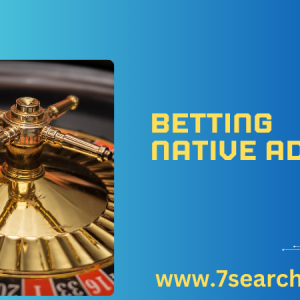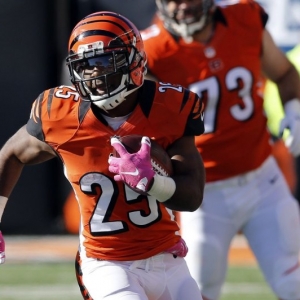The sports gambling industry has witnessed a transformative shift in recent years, with advertising playing a pivotal role in driving its growth. As legalization spreads across various regions and more players enter the betting market, sports gambling ads have become a crucial tool for both engagement and customer acquisition. These ads, often strategically placed across digital platforms, are changing how businesses promote their services and how consumers interact with betting platforms.
In this article, we’ll explore how sports gambling ads are revolutionizing the industry, examining the role of modern advertising strategies such as Digital Banner Ads, the contribution of betting PPC agencies, and how iGaming ads are shaping this competitive landscape.

The Rise of Sports Gambling Ads
Sports gambling has experienced unprecedented growth, spurred by changing legal frameworks and the digital transformation of marketing strategies. Today, advertising plays a crucial role in introducing users to online betting platforms. From the NBA to the English Premier League, sports events provide prime opportunities for targeted gambling ads. But beyond visibility, these ads have redefined how betting companies connect with their audience.
The Role of Legalization in Shaping the Advertising Landscape
As more regions embrace the legalization of sports gambling, advertising becomes more prominent and diversified. Legal markets offer a unique opportunity for betting companies to engage audiences through regulated ads, ensuring compliance while promoting responsible gambling.
This shift has empowered companies to invest in sophisticated marketing tools, from television spots during major sporting events to digital ad strategies tailored to niche markets. The result? A new era of targeted, immersive, and persuasive advertising aimed at growing the customer base.
How Digital Banner Ads Drive Engagement
Digital Banner Ads play an essential role in the sports gambling industry. These ads are highly customizable and offer the ability to target specific demographics based on user behavior, preferences, and interests. Whether placed on sports news websites, betting apps, or social media platforms, Digital Banner Ads capture the attention of potential bettors while promoting various betting opportunities.
Benefits of Digital Banner Ads for Sports Gambling
Targeted Advertising: Digital Banner Ads enable sports gambling companies to deliver personalized content to potential users. By utilizing data on users’ betting habits and favorite sports, companies can create highly relevant ads that resonate with specific audiences.
Enhanced Brand Visibility: These ads increase visibility, ensuring that sportsbooks and betting platforms remain top of mind. By consistently appearing in key locations, they keep users engaged and more likely to explore the advertised platform.
Cost-Effectiveness: Compared to traditional advertising mediums, Digital Banner Ads are a cost-effective solution. With pay-per-click (PPC) models, advertisers only pay when users click, maximizing the return on investment (ROI).
Key Strategies for Effective Digital Banner Ads
To succeed, sports gambling companies need to implement robust strategies in their Digital Banner Ad campaigns. These strategies include creative designs that entice users to click, compelling calls to action (CTAs), and frequent A/B testing to measure performance and refine campaigns.
Betting PPC Agencies: Fueling Growth in the Gambling Market
With the increasing demand for online sports betting, betting PPC agencies have emerged as key players in promoting sports gambling ads. These agencies specialize in pay-per-click advertising, helping sportsbooks and gambling platforms achieve maximum visibility in search results and across the web.

How Betting PPC Agencies Work
Betting PPC agencies use a variety of tactics, from keyword bidding to audience segmentation, to ensure that sports gambling ads are seen by the right people at the right time. Their expertise lies in targeting high-intent audiences—those actively searching for betting opportunities—resulting in higher conversion rates.
By focusing on metrics such as click-through rates (CTR), cost per acquisition (CPA), and overall ad spend, these agencies optimize campaigns to deliver more traffic to sports betting websites.
Why Sports Gambling Companies Rely on PPC Agencies
Industry Expertise: Betting PPC agencies understand the intricacies of the sports gambling industry, including legal restrictions, audience behavior, and competitive dynamics.
Scalability: PPC campaigns managed by agencies are scalable. As the popularity of sports betting grows, these campaigns can be adjusted to target new regions, markets, and sports events.
Optimized ROI: Agencies leverage data analytics to constantly refine campaigns, ensuring that the betting company’s marketing dollars are spent efficiently.
The Power of iGaming Ads
iGaming ads, which include a broad range of digital advertisements for online casinos and betting platforms, have also transformed the sports gambling landscape. These ads are dynamic, versatile, and designed to drive interaction and conversions on mobile and desktop platforms.
Types of iGaming Ads
Interactive Ads: iGaming ads often include interactive elements like quizzes, mini-games, or live betting options, making the ad experience more engaging for users.
Video Ads: Video ads are a powerful tool in iGaming, showcasing live betting odds, game highlights, or even tutorials on how to place a bet.
In-Game Ads: Sports gambling companies are increasingly integrating ads into popular mobile and online games, targeting gamers who are interested in betting on real-life sporting events.
How iGaming Ads Increase User Engagement
iGaming ads utilize data-driven personalization, delivering the right message to the right audience at the right time. By using AI-powered algorithms, these ads can predict which sports events a user is likely to bet on, enhancing the relevance and effectiveness of the advertisement.
The Role of Casino PPC Agencies in Sports Gambling
Casino PPC agencies have been instrumental in the rise of sports gambling ads, particularly in markets where online casinos and sportsbooks overlap. These agencies use PPC strategies to promote both traditional casino games and sports betting, ensuring that bettors have a seamless experience when transitioning between the two.
Why Casino PPC Agencies Are Important
Cross-Promotion Opportunities: By handling both casino and sports betting campaigns, PPC agencies can offer cross-promotion strategies that maximize user engagement across different gambling verticals.
Data-Driven Insights: Casino PPC agencies use advanced analytics to monitor user behavior across betting platforms, allowing them to create tailored ads that drive conversion rates higher.
Compliance and Risk Management: In the highly regulated world of online gambling, these agencies ensure that all ads adhere to legal guidelines while promoting responsible betting practices.
The Future of Sports Gambling Ads
The sports gambling industry shows no signs of slowing down, and as the competition intensifies, ads will continue to evolve to capture attention in new and innovative ways. Companies are exploring new formats and platforms to reach potential bettors, from social media integrations to streaming ads during live sports events.
Emerging Trends in Sports Gambling Ads
Programmatic Advertising: Using automated, real-time bidding systems, sports gambling companies can serve ads more efficiently across multiple platforms, optimizing for user engagement and conversions.
Personalized Marketing: Data and AI will play a greater role in delivering hyper-targeted sports gambling ads, where every user's experience is tailored to their unique betting preferences.
Influencer Collaborations: Partnering with sports personalities and influencers, gambling companies will create more authentic connections with their audiences, leveraging the trust and reach of these figures.
Challenges and Considerations
While sports gambling ads present exciting opportunities, there are also significant challenges. Ad regulations vary by region, and companies must navigate these legal complexities to avoid penalties. Additionally, responsible advertising is essential to prevent problem gambling and ensure that ads are only targeting eligible audiences.
Responsible Advertising in Sports Gambling
The sports gambling industry has a duty to promote responsible gaming. Advertisements should never encourage reckless betting behavior or target underage audiences. Many companies are now integrating responsible gambling messages into their ads, promoting tools such as deposit limits and self-exclusion options.
Conclusion
Sports gambling ads have undeniably revolutionized the betting industry. From Digital Banner Ads to PPC campaigns managed by specialized agencies, the growth of advertising in this sector has led to greater user engagement, higher conversion rates, and a more competitive marketplace. With new technologies and strategies on the horizon, igaming ads will continue to evolve, offering exciting possibilities for companies and bettors alike. As the industry moves forward, responsible advertising and innovative marketing approaches will be key to sustaining this momentum.
Frequently asked questions (FAQs)
How are sports gambling ads changing the way companies market their products?
Answer: Sports gambling ads are utilizing advanced targeting techniques and data analytics to reach specific demographics, making advertising more effective. They often feature engaging content that resonates with sports fans, using real-time events and promotions to capture attention and drive engagement.
What impact do sports gambling ads have on fan engagement?
Answer: Sports gambling ads significantly enhance fan engagement by integrating advertisements with live sporting events. This creates interactive experiences, such as in-game betting promotions, that keep fans involved and invested in both the game and the betting experience.
Are there any regulations surrounding sports gambling advertising?
Answer: Yes, regulations vary by region and often include guidelines on responsible advertising practices, targeting minors, and ensuring the transparency of odds and terms. Advertisers must comply with these regulations to promote responsible gambling and avoid misleading consumers.







